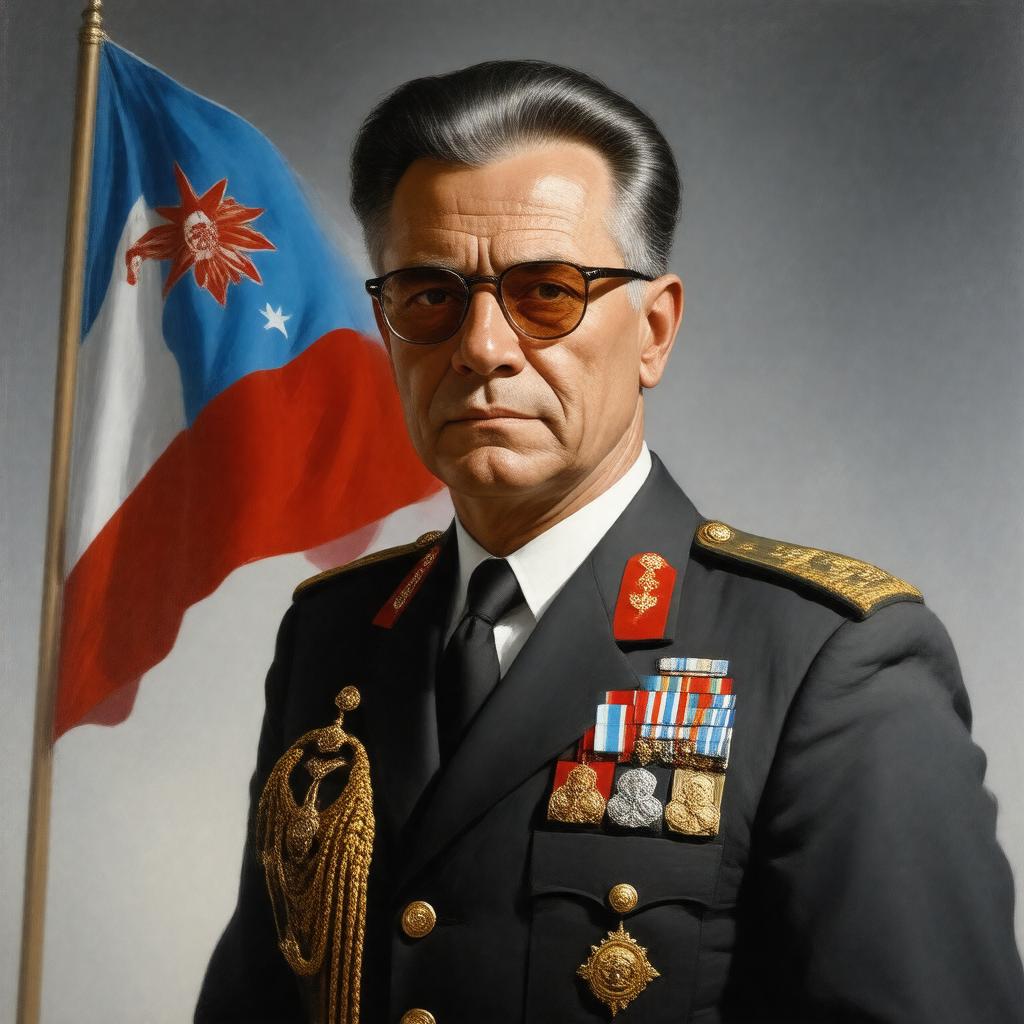Prompt
Generate an image of Josip Broz Tito, a human, in a formal military uniform, adorned with numerous medals and insignia, standing in front of a Yugoslavian flag, symbolizing his role as the President of Yugoslavia, Marshal of Yugoslavia, and a key figure in the Non-Aligned Movement, in a realistic and dignified style.

